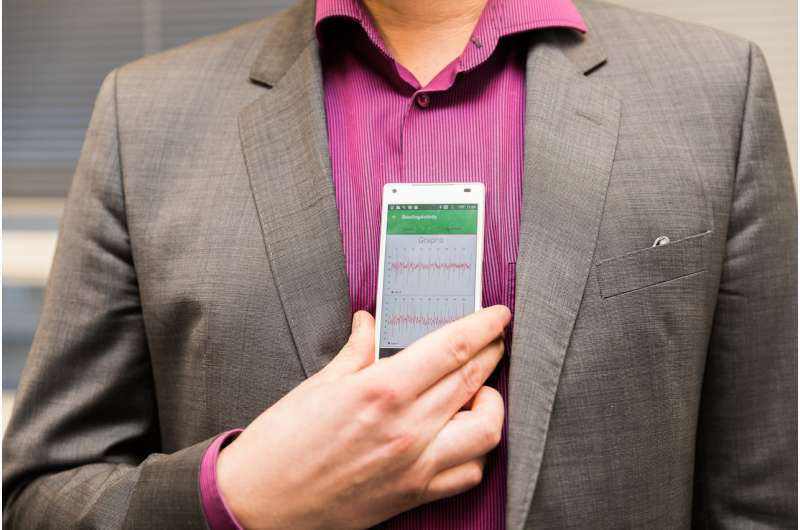Mobile application detecting atrial fibrillation reduces the risk of stroke

A new smartphone application developed at the University of Turku, Finland, can detect atrial fibrillation that causes strokes. Atrial fibrillation can now be detected without any extra equipment. The mobile application can save lives all over the world as timely diagnosis of atrial fibrillation is crucial for effective stroke prevention.
The joint research project of the University of Turku and the Heart Centre of the Turku University Hospital involved 300 heart patients, half of whom had atrial fibrillation. The researchers managed to identify the patients with atrial fibrillation from the other group using the app.
The mobile application detected which patients had atrial fibrillation with 96 percent accuracy. In other words, the application recognised automatically near all cases with atrial fibrillation and the number of false alarms was very low.
"The results are also significant in that the group included different kinds of patients, some of whom had heart failure, coronary disease, and ventricular extrasystole at the same time. The research was conducted as a blind study, which means that the hospital sent us measurement data for analysis without any additional information," says Project Manager Tero Koivisto from the Department of Future Technologies.
The completed analyses were sent back to the hospital where their reliability was checked. This way, additional optimisation during the study on the basis of the data was not possible.
"At first, I was rather anxious about how well the algorithm will do in the blind study, especially because I felt that the patient group was particularly challenging. You could say that I was surprised myself how well it worked in the end," says Mr Koivisto.
The application has been under development for quite some time, requiring seven years of careful research. Detecting atrial fibrillation has been a worldwide medical challenge for years, but affordable solutions available for all have been lacking. When technology researchers at the University of Turku were designing new solutions in collaboration with cardiologists of Turku University Hospital back in 2011, they decided to investigate whether it was possible to detect atrial fibrillation from the micromovements in the chest using small accelerometers . They determined that it is possible.
"Most smartphones have an accelerometer. As nearly everyone has a smart phone, we decided to develop a simple application that could be used for detection. In the future, everyone who owns a smartphone can detect atrial fibrillation," says Mr Koivisto.
According to Chief Physician and Professor of Cardiology Juhani Airaksinen from Turku University Hospital, this is the first time that ordinary consumer electronics have achieved such reliable results that they can be actually beneficial for the patient's medical care. The results are also remarkable in that intermittent atrial fibrillation is not always detected even at the doctor's office.
"If everyone can measure with an ordinary smartphone whether they have atrial fibrillation, we have the possibility to direct patients straight to the doctor and further testing without any delay. Therefore, the potential for economic savings is significant," says Professor Airaksinen.
The researchers want to make the application available for all as quickly as possible, and they believe that it will also spread to the international market. According to Mr Koivisto, the commercialisation of the method is advancing quickly.
The results of the study was published in the Circulation journal.
More information: Jussi Jaakkola et al, Mobile Phone Detection of Atrial Fibrillation With Mechanocardiography: The MODE-AF Study (Mobile Phone Detection of Atrial Fibrillation), Circulation (2018). DOI: 10.1161/CIRCULATIONAHA.117.032804


















